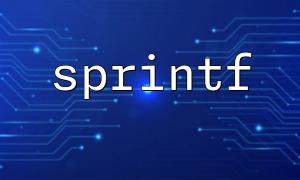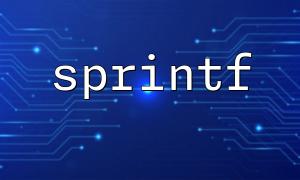In PHP, the sprintf function is used to format strings, allowing us to insert different types of variables and control their formatting. There are many common formatting symbols, such as %s is used to format strings, %d is used to format integers, and so on. However, when using these formatting symbols, accidentally mixing %s (string) and %d (integral) can lead to some hard to detect errors or unexpected behavior.
When we use sprintf , it parses the corresponding parameter type according to the formatting symbol. If you use %s and %d together and pass a mismatched data type when formatting a string, an error will occur. These errors usually appear as:
Type mismatch: PHP automatically converts the types when you use %d to format strings, or use %s to format numbers, but this conversion is not always the result you want. For example:
echo sprintf("number:%d,text:%s", "hello", 123);
In this example, %d attempts to convert "hello" (string) to a number, which results in a warning because "hello" cannot be converted to a valid number. %s will convert the integer 123 into a string and output "123" .
Inconsistent output formats: In some cases, the mixing of formatted symbols can lead to inconsistent output formats. For example, passing in a number to %s , it converts the number into a string and formats the output. But this output may not be as good as you expect, such as the string length and fill method may not match the way the number is formatted.
To avoid this type of problem, the formatted symbol and the incoming parameter type should be strictly matched. You can ensure the format is correct by:
Make sure %s is used to format strings and %d is used to format integers.
For other types of data, more suitable format symbols can be used, such as %f for floating point numbers, %b for binary numbers, etc.
Use type checks to confirm whether the incoming parameter type is as expected, or use type conversions to ensure consistency.
For example:
// Correct usage
$integer = 123;
$string = "hello";
echo sprintf("number:%d,text:%s", $integer, $string);
In this way, we can ensure that the formatted symbols and data types match, thus avoiding the problem of type mismatch.
When using the sprintf function, the mixing of formatted symbols such as %s and %d may lead to problems such as type mismatch and inconsistent output. To avoid these problems, we should make sure that the formatted symbols match the type of the incoming parameter, using type checking and conversion if necessary. This is a little trick to write robust code to help us avoid unexpected results due to formatting errors.















